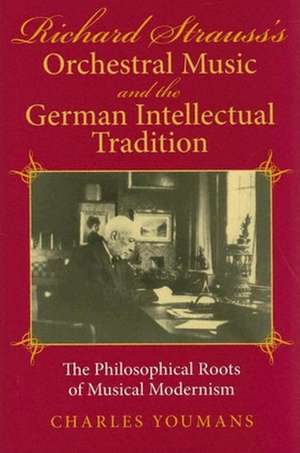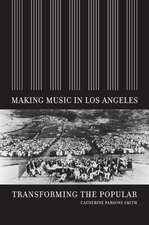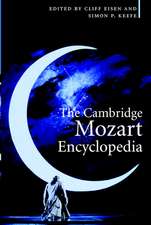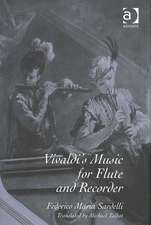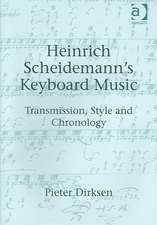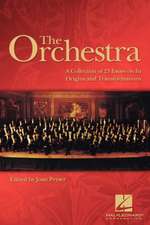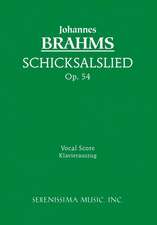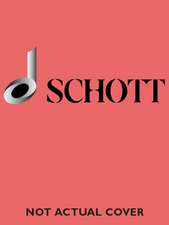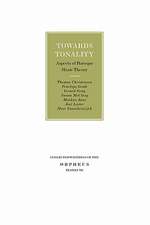Richard Strauss`s Orchestral Music and the Germa – The Philosophical Roots of Musical Modernism
Autor Charles Youmansen Limba Engleză Hardback – 6 iul 2005
Richard Strauss's Orchestral Music and the German Intellectual Tradition breaks new ground in Straussian studies. Youmans provides a provocative investigation of Strauss's private intellectual life and its impact on the brilliant music he created during the formation of his worldview. The composer's works have traditionally been viewed as a product of high German Romanticism, yet Youmans demonstrates that Strauss's entire body of orchestral music can be read as a history of his struggle with specific intellectual-historical concerns. Exploring the significant influences of Schopenhauer, Nietzsche, Goethe, and Wagner on the young composer, Youmans insightfully establishes that the cultural convictions and preconceptions which grounded the composer's artistic choices in fact provided him with the philosophical and musical materials that formed the basis of an early modernism. Through this grounding, the mature Strauss succeeded in opening up a new aesthetic frontier devoted to optimism, physicality, and the visual.
Preț: 365.00 lei
Nou
Puncte Express: 548
Preț estimativ în valută:
69.84€ • 73.11$ • 58.13£
69.84€ • 73.11$ • 58.13£
Carte tipărită la comandă
Livrare economică 31 martie-14 aprilie
Preluare comenzi: 021 569.72.76
Specificații
ISBN-13: 9780253345738
ISBN-10: 0253345731
Pagini: 312
Dimensiuni: 189 x 241 x 26 mm
Greutate: 0.65 kg
Editura: MH – Indiana University Press
ISBN-10: 0253345731
Pagini: 312
Dimensiuni: 189 x 241 x 26 mm
Greutate: 0.65 kg
Editura: MH – Indiana University Press
Cuprins
Contents
Intellectual History and Artistic Production: The Case of Richard Strauss
Part I. The Private Intellectual Context of Strauss's Early Career
1. "The Conversion": Strauss and Wagnerism
2. Music and the "Denial of the Will": Schopenhauer in Strauss's Life and Work
3. Strauss's Nietzsche
4. Goethe and the Development of Strauss's Mature Worldview
Part II. Orchestral Composition as Philosophical Critique
5. The First Cycle of Tone Poems: Genesis of a Critical Musical Technique
6. Eulenspiegel, Zarathustra, Quixote, Strauss: Crystallization of a Persona
7. Absolute Music, Twentieth-Century Aesthetics, and the Symphonies of
Richard Strauss
Notes
Works Cited
Index
Intellectual History and Artistic Production: The Case of Richard Strauss
Part I. The Private Intellectual Context of Strauss's Early Career
1. "The Conversion": Strauss and Wagnerism
2. Music and the "Denial of the Will": Schopenhauer in Strauss's Life and Work
3. Strauss's Nietzsche
4. Goethe and the Development of Strauss's Mature Worldview
Part II. Orchestral Composition as Philosophical Critique
5. The First Cycle of Tone Poems: Genesis of a Critical Musical Technique
6. Eulenspiegel, Zarathustra, Quixote, Strauss: Crystallization of a Persona
7. Absolute Music, Twentieth-Century Aesthetics, and the Symphonies of
Richard Strauss
Notes
Works Cited
Index
